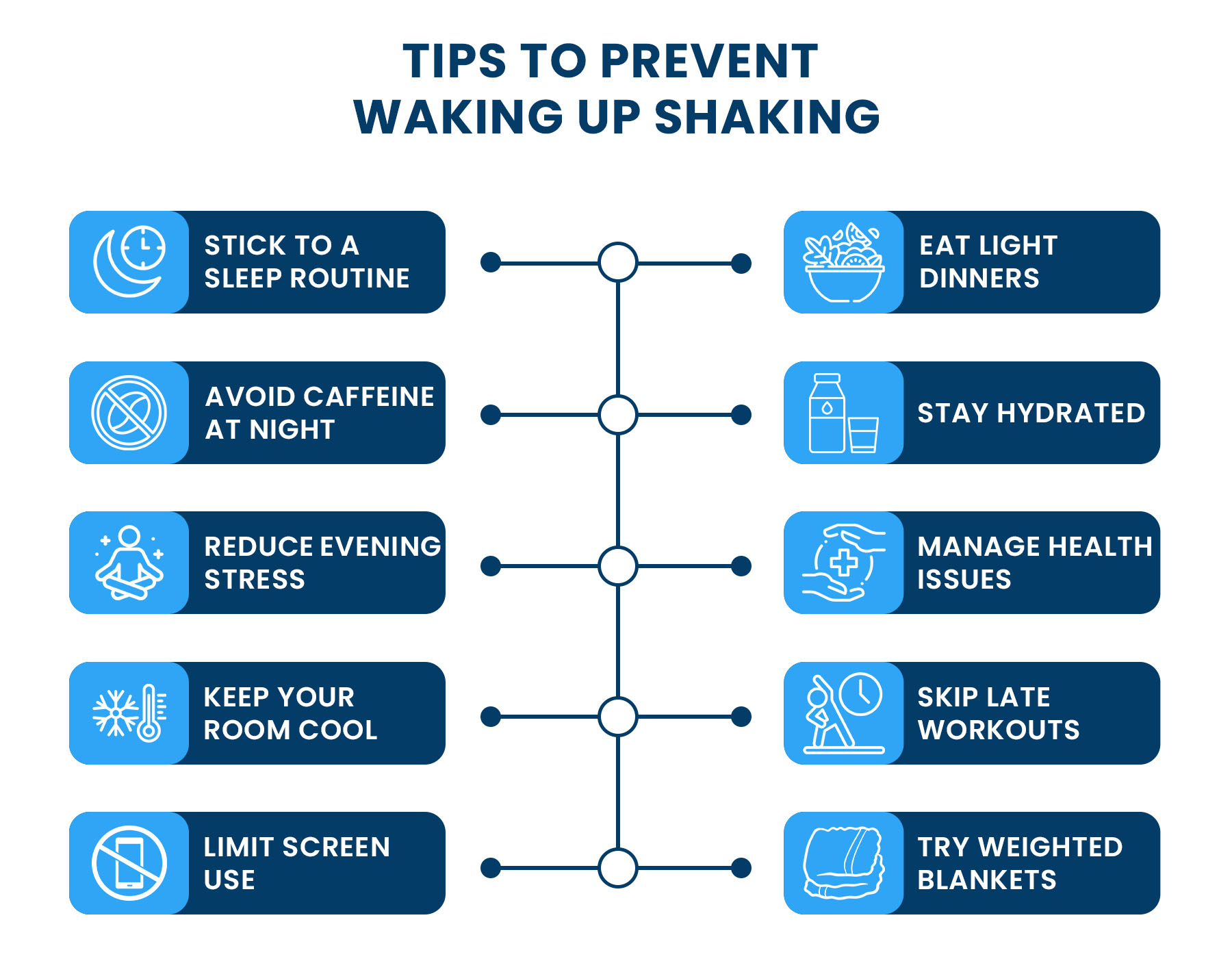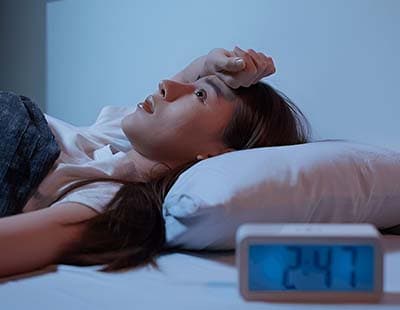Waking up shaking can be a scary thing to experience, leaving you worried and confused about your body. Regardless of whether you have just a little shake in your hands or your entire body is shaking, waking up shaking can be shocking to experience and make your morning tougher.
This blog post will dig into the simple explanations behind shaking when you wake, which can be from physical causes or emotional ones, and give some ideas for what to do about it or how to prevent it.
Understanding why you are experiencing shaking can make it easier to find the right directions in addressing it and make it easier to begin your day or carry on with your morning.
11 Causes of Shaking upon Waking
There are many possible reasons you might shake or experience tremors upon waking, including physical and emotional causes. Some of the most likely reasons include:
1. Low Blood Sugar (Hypoglycemia)
While you sleep, your body takes whatever glucose it requires for energy. While overnight fasting, glucose levels in your blood may decrease without a recent meal. Low blood sugar can lead to shaking, sweating, dizziness, and/or irritability. This is particularly common in people who have diabetes or who skip meals before going to bed.
2. Adrenal Response (Fight or Flight Response)
You may have a slight adrenaline response as part of your body's fight or flight response related to something stressful or anxiety-provoking, even if you don't actively realize that something is anxiety-provoking occurring.
Adrenaline, or a surge of adrenaline, is felt most often upon waking from sleep when you awaken either because of an anxious thought or feeling, or due to a dream that is fearful and otherwise activates your sympathetic nervous system.
3. Sleep Disorders (Sleep Apnea, Night Terrors, etc.)
Some sleep disorders, such as sleep apnea or night terrors, can also cause sudden wakefulness and are typically accompanied by physical symptoms, such as shaking. In sleep apnea, for example, the brain will send the message "wake up" when oxygen levels drop at night, and it can cause anxiety or even shaking.
4. Anxiety or Stress
When you are under emotional or psychological stress, your body might remain on alert even when you wake up. That can result in shaking or trembling. It's a normal reaction when your body releases additional cortisol, which is the adrenaline or stress hormone.
5. Dehydration
This may comprise several bodily signs, including tremors or shaking. The body cannot hold a stable temperature when dehydrated, and the muscle function might be affected, leading to shaking.
6. Caffeine or Medication Withdrawal
Shaking can be a result of withdrawal from caffeine or other drugs. A typical example is the withdrawal from caffeine, which may cause headaches, lethargy, and shakiness, particularly for those who use caffeine regularly and then suddenly withdraw from it.
7. Hypothermia or Low Body Temperature
If your body temperature drops too low during sleep from a cold environment, poor bedding, or illness. Then, your body would naturally begin shaking to heat the body up.
8. Hypotension (Low Blood Pressure)
Upon waking up, blood pressure can likewise rapidly decrease (orthostatic hypotension), leading to shakiness and dizziness due to the rapid change from lying down to standing up by the body.
9. Sleep Interference or Nightmare
Occasionally, nightmares or broken sleep put the body into a state of high tension. Waking can make you feel physically uncomfortable, at times causing you to shake or shiver.
10. Drinking Too Much Coffee or Alcohol
Excessive caffeine or alcohol can lead to shaking upon waking. High caffeine intake can result in jitteriness and even tremors because of high adrenaline levels. Alcohol shakes occur from withdrawal, dehydration, or long-term use of the substance. In many cases, shakes are temporary and associated with the use or withdrawal of these substances.
11. Parkinson’s Disease
Parkinson’s disease, or in other words, a brain disorder, results in a resting tremor, rigid muscle, and bradykinesia due to the reduction of dopamine within the human brain. Unlike shakiness brought by either caffeine or alcohol, in Parkinson's disease, shakes usually worsen with time, and other movements become hindered.

Tips to Prevent Waking Up Shaking
Here are some tips to help prevent waking up shaking:
1. Eat a Balanced Meal Before Bed
A small, balanced meal before bed can maintain your blood sugar levels at night. Include foods containing protein, healthy fats, and complex carbohydrates such as nuts, yogurt, or whole-grain crackers.
2. Avoid Excessive Caffeine and Alcohol
Limit the amount of caffeine consumed, especially in the afternoon and evening, as this could interfere with sleep or stimulation, leading to shakiness. Heavy alcohol intake also causes withdrawal symptoms or dehydration, thus resulting in morning tremors.
3. Stay Hydrated
Drink enough water throughout the day to keep hydrated for a good night’s sleep. This shakes, especially after a full night of sleep.
4. Manage Stress and Anxiety
If these induce shaking, perform some type of relaxation method before sleeping, such as deep breathing, meditation, or even yoga. Implement a bedtime routine that has soothing characteristics.
5. Get Enough Sleep
Set up your sleeping schedule to acquire the required 7-9 hours of sleep every night. Lack of sleep will affect your nervous system and lead to the effects of shaking.
6. Gradual Caffeine and Alcohol Reduction
If you are accustomed to consuming large amounts of caffeine or alcohol, taper off your intake to avoid withdrawal symptoms like shaking. Abrupt changes in consumption can cause tremors.
7. Check for Underlying Medical Conditions
If the shaking persists, see a healthcare provider. Low blood sugar, thyroid imbalances, or neurological disorders, such as Parkinson's disease, may be involved.
Final Thoughts
Waking up shaking is rather uncomfortable, but once you know what might cause it and take steps to act, you can control or even prevent those episodes. Whether you have low blood sugar, need to reduce stress, or talk to your doctor if these symptoms persist, there are solutions for you to wake up calm and refreshed. Pay attention to your body's signals, and don't hesitate to consult a healthcare professional if the shaking continues or worsens. Once you know the cause, you can take control and start each day confidently and easily.






















